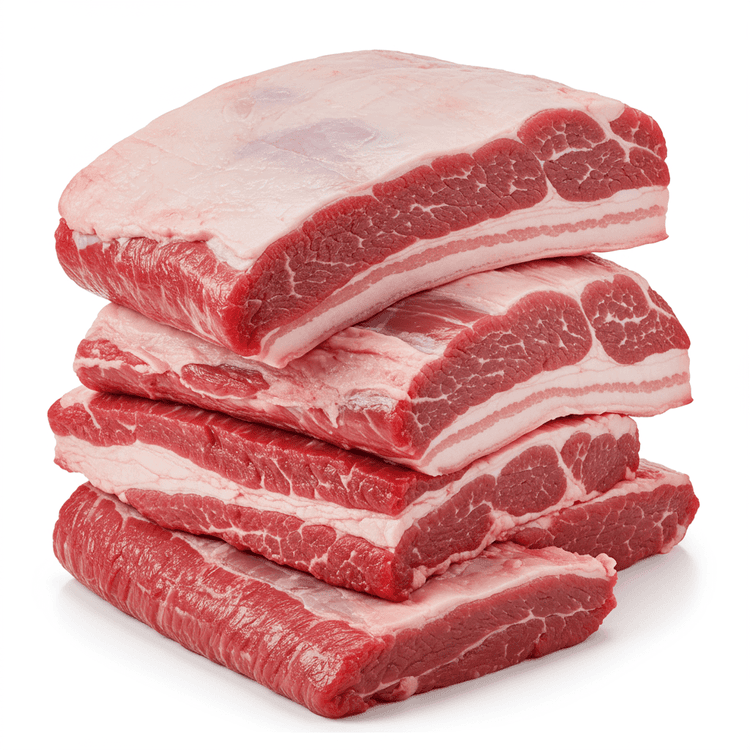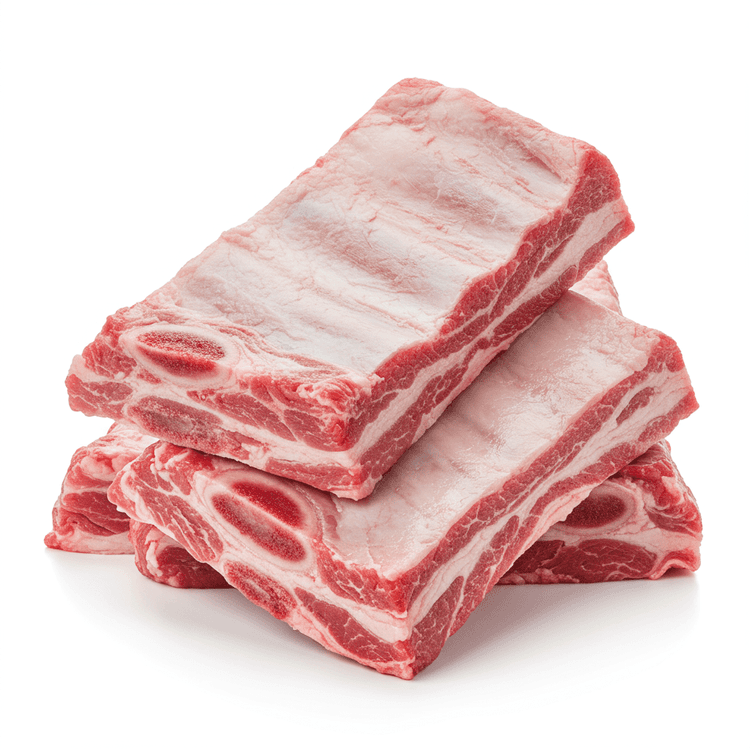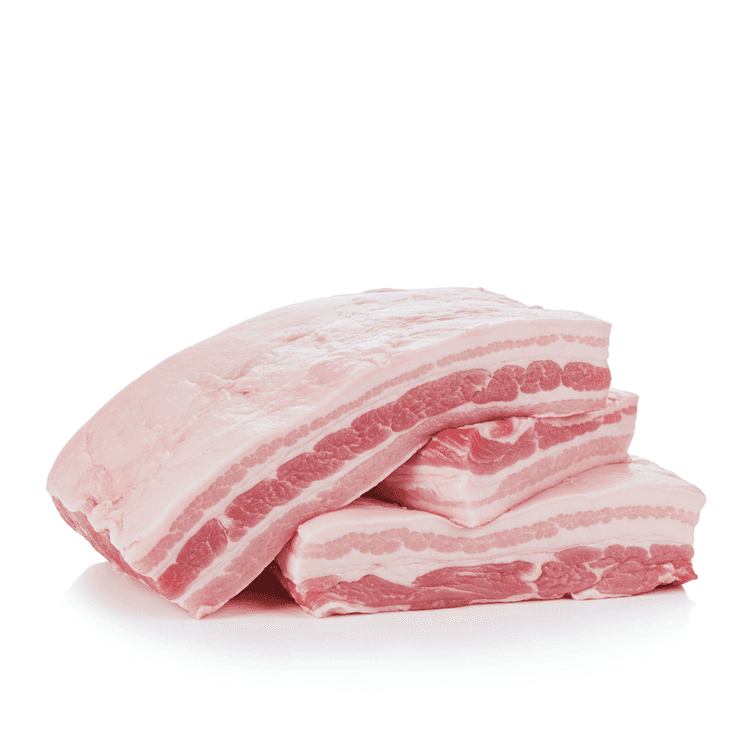
Beef Belly
Beef belly, a flavorful and increasingly popular cut of beef, comes from the underside of the cow, specifically the abdominal area. Known for its rich marbling and high fat content, beef belly boasts a tender and succulent texture when cooked properly. It has a robust, beefy flavor that intensifies with slow cooking methods. In its raw form, beef belly appears as a thick slab of meat with distinct layers of fat interspersed throughout the muscle. Discover the delicious possibilities of beef belly in your next culinary creation!
Common Uses
- Used to make beef bacon: Beef belly can be cured and smoked similarly to pork belly, resulting in a rich and savory beef bacon alternative. The high fat content crisps up beautifully when fried.- Braised for tenderness: Beef belly is excellent when braised in flavorful liquids, such as soy sauce, wine, or broth. The slow cooking process tenderizes the meat and allows the flavors to meld together.- Grilled or barbecued: When grilling or barbecuing beef belly, low and slow cooking is key to rendering the fat and achieving a smoky, tender result. Marinating beforehand enhances the flavor.- Perfect for stews and soups: The rich flavor of beef belly infuses stews and soups with a deep, beefy essence. It adds richness and substance to hearty broths.- Used in Asian cuisine: Beef belly is commonly used in various Asian dishes, such as Korean barbecue (KBBQ), where it's thinly sliced and grilled, or in ramen for a flavorful and fatty addition.- Pan-fried for crispy texture: Beef belly can be pan-fried until crispy, resulting in a delicious and satisfying dish.
Nutrition (per serving)
Nutrition (per serving)
Calories
579.0kcal (28.95%)
Protein
13.9g (27.8%)
Carbs
0.0g
Sugars
0.0g
Healthy Fat
27.4g
Unhealthy Fat
29.1g
% Daily Value based on a 2000 calorie diet
Nutrition (per serving)
Calories
579.0kcal (28.95%)
Protein
13.9g (27.8%)
Carbs
0.0g
Sugars
0.0g
Healthy Fat
27.4g
Unhealthy Fat
29.1g
% Daily Value based on a 2000 calorie diet
Health Benefits
- Rich source of protein, essential for muscle building and repair.
- Contains iron, vital for red blood cell production and preventing anemia.
- Provides zinc, important for immune function and wound healing.
- Offers B vitamins like B12, crucial for nerve function and energy metabolism.
- Source of choline, supports brain health and liver function.
Substitutes
Chefadora AI is here.
Experience smarter, stress-free cooking.
Storage Tips
Beef belly is best stored in the refrigerator to maintain its quality and prevent spoilage. Wrap it tightly in plastic wrap or place it in an airtight container before refrigerating. It can be stored in the refrigerator for up to 2-3 days. For longer storage, freeze the beef belly. Wrap it tightly in freezer-safe wrap or place it in a freezer bag, removing as much air as possible to prevent freezer burn. Frozen beef belly can last for several months.
Marnirni-apinthi Building, Lot Fourteen,
North Terrace, Adelaide, South Australia, 5000
Australia




